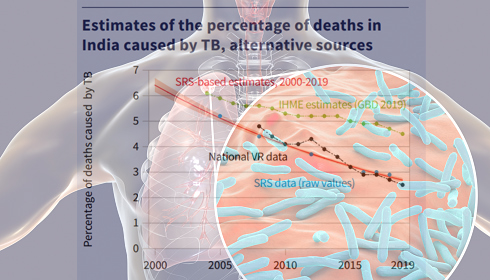
Shared Origins Amplify Tuberculosis Risk: Study Reveals Geographic Link to Infection Rates
A new study performed by Harvard Medical School scientists discovered that the chance of tuberculosis (TB) infection increases dramatically when the bacteria and the human host have a geographic origin. The study, published recently in Nature Microbiology, provides the first tangible data confirming long-held beliefs that the interaction of pathogen, site, and human host individually determines infection risk.
The study underlines the importance of targeted prevention and treatment measures for tuberculosis, a disease that affects over 10 million people each year and kills more than a million people worldwide, according to the World Health Organization.
Researchers conducted the first controlled study of TB strain infectivity among mixed populations in global cities, using case files from New York City, Amsterdam, and Hamburg. The study found that intimate household contacts of people with TB strains from a geographically restricted lineage had a 14% lower infection rate and a 45% lower risk of acquiring active TB disease than those exposed to a widespread lineage strain.
The study also found that strains with small geographic distributions are more likely to infect people who have roots in the bacteria's original region. Exposing a contact to a pathogen from a non-matching versus a matching geographic region reduced the likelihood of infection by 38%. This shows that humans and microorganisms evolved together, increasing the danger of infection in particular populations.
"The size of the effect is surprisingly large," noted Maha Farhat, Gilbert S. Omenn, MD '65, PhD, Associate Professor of Biomedical Informatics at Harvard Medical School. "That's a good indicator that the impact on public health is substantial."
Researchers have discovered remarkable heterogeneity among circulating tuberculosis strains as genomic sequencing has advanced. While some lineages are widespread and contribute significantly to the global tuberculosis load, others are specific to specific locations. The new study sheds light on why certain strains have a strong affinity for specific human groups, emphasizing the necessity of understanding these dynamics for successful tuberculosis control.
"These findings emphasize how important it is to understand what causes different strains of tuberculosis to behave so differently from one another and why some strains have such a strong affinity for specific, related groups of people," said Matthias Groeschel, the study's first author and a research fellow in biomedical informatics in Farhat's lab at HMS.
The study's findings may inform new approaches to tuberculosis prevention and treatment. For example, some TB genetic groups are more likely to develop treatment resistance, and vaccines may be more effective in specific areas. Understanding the genetic and structural variations in bacterial-host cell interactions is critical for creating effective therapies and vaccines.
"We're at the very beginning of appreciating the importance of that diversity," Groeschel told the audience. "There's so much more to learn about how it might impact the efficacy of drugs, vaccines, and the course that disease takes in different strains."
A multidisciplinary partnership between public health departments and research teams in the United States, the Netherlands, and Germany made the study feasible. The study looked at 5,256 tuberculosis cases and 28,889 close connections, combining large public health data with modern computational biology technologies.
"This study is a great example of why it's so important for researchers to collaborate with many different kinds of partners," Groeschel told reporters. "We were able to merge public health data from three big cities and use the powerful computational biology tools that we have access to in academic medicine to answer a complicated question that has important implications for public health and evolutionary biology, vaccine development, and drug research."
The findings highlight the complexities of tuberculosis transmission and the importance of customized public health policies in successfully combating this global health concern.